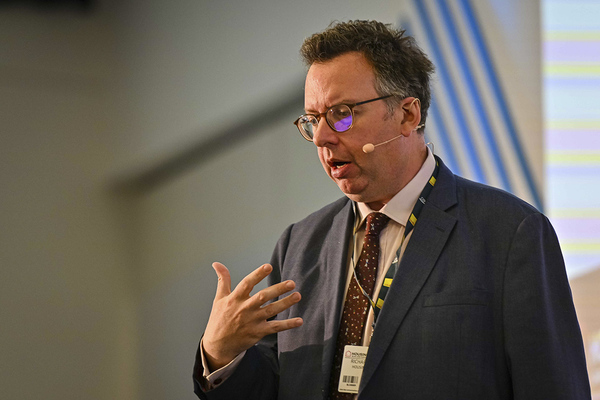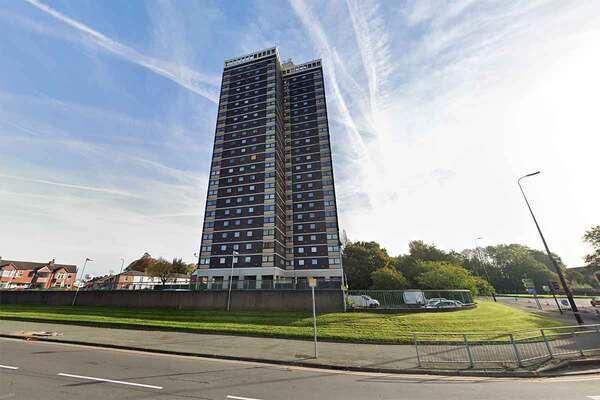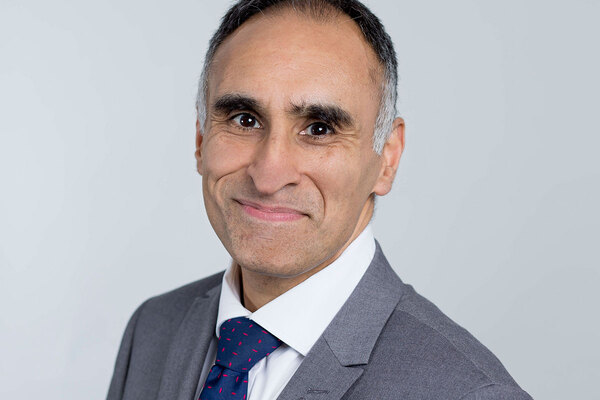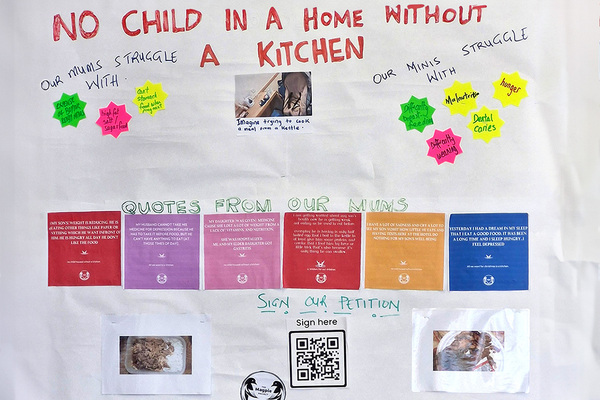Chance to solve a crisis
A Housing First approach to homelessness in Liverpool may finally provide some answers to a crisis, says Kate Farrell. Picture by Getty
Article written in partnership with:

Important things are happening in the fight to tackle homelessness in the Liverpool City Region (pictured), which is why I agreed to a secondment from my role with Crisis, to join the combined authority as its strategic lead on homelessness.
We have a once-in-a-generation opportunity to tackle the root causes of homelessness by taking radical action to re-engineer the whole system, rather than tinkering around the edges.
And we have that opportunity due to the convergence of a number of factors.
There is the political will here in the city region to do things differently, led by metro mayor Steve Rotheram, who championed the adoption of a Housing First approach to end homelessness as part of his election manifesto.
There has been a quiet revolution happening in other parts of the world, where the Housing First model is being used to end homelessness for those with the greatest support needs.
The central concept of Housing First is that permanent housing is provided without the need to prove readiness, and that co-ordinated, personalised, intensive support is put in place to help that person to maintain and thrive in that home.
There is overwhelming international evidence that it works, evidence backed up by a feasibility study carried out here in the Liverpool City Region.
With the political will in place, this successful feasibility study, along with the ongoing successes in countries like Finland, led to our city region being awarded £7.7m by central government. We are one of three pilot areas, along with Greater Manchester and the West Midlands, that have been chosen for a pilot of the Housing First approach.
Our partner organisations across the region, including our six constituent local authorities and our local housing associations, have shown themselves to be up for the challenge of recalibrating and re-engineering our approach to tackling homelessness.
Because there is no doubt that the system needs to change.
A workable solution
I’ve worked with people who are homeless for 15 years and I know we don’t always do things right. That is not a reflection on staff and volunteers, who work tirelessly to support some of the most vulnerable and disenchanted people in our society. The fact is that the system isn’t geared up to give homeless people what they need – access to permanent housing.
I have seen people working every day to overcome these challenges and provide incredible support for people who sometimes, understandably, aren’t that easy to work with. But it would be much easier if all that effort was being channelled through a system that was redesigned to work better for the exact people it is there to support.
Ending homelessness may seem at its core quite simple – give someone a home and they are no longer homeless. Achieving it is much more complex. Of course, the home must be affordable, safe and comfortable, and come with the appropriate support to help that person manage the practicalities and emotional challenges that can come with the move, but sometimes it has felt like that aspiration is incredibly far away for the people we’ve been trying to support.
Emergency and temporary accommodation solutions are obviously what is needed at a moment of crisis, but they are regularly becoming a long-term response. Who would really want to ‘live’ in a shelter or a hostel? They are no substitute for a home, which is what we should aspire to for everyone.
I don’t believe there is any such thing as ‘housing ready’, and terms like ‘the homeless’ suggests ‘other’ people. In reality, homelessness is a symptom of a system that has failed, and people experiencing homelessness are not fundamentally different – they are just people who need a home.
Homelessness is increasing in all of its forms, but it does discriminate. If you are poor, and have grown up poor, you are far more likely to experience homelessness. Many people who are homeless have lots of other support needs, which may not have been fully met for many years.
These factors compound and can often lead to people becoming entrenched in a ‘street lifestyle’ (another term we have come to accept) or unable to engage with the services that are on offer. This is not a failing of that individual; it is a failing of the services we are offering.
If you genuinely feel your best option for your day, or life, is sleeping outside or sitting on a pavement, something has gone horribly wrong. There is an acceptance that some people are just too hard to help, or whatever help we provide will be temporary and ‘good enough’ until the next crisis when we see them again – we need to aspire to something better than this.
That something better is Housing First, which has been proven to work.
It will not happen overnight, but the funding from the Ministry of Housing, Communities and Local Government gives us the resources to start what we need to do. We are already building a team, based within the combined authority and, crucially, we are working very hard with our partners in our local authorities and housing associations, because for Housing First to work it cannot be a small standalone project – its principles must form the cornerstone of how we do business.
It will require a completely new approach, and I am pleased that so many people have shown themselves to be so open to change. One of the things that we will need to do, and have already begun, is to involve the people we are here to support in every part of the process, including commissioning, listening to and learning from the lived experience of homeless people, ensuring that the new system works for them.
Central government has signalled its commitment to the success of Housing First by putting aside almost £2m for a national evaluation of the pilot, which I hope signals real aspiration for rolling the approach out across the country.
We have a fantastic chance to make long-term homelessness a thing of the past. Next year will see real change here in the city region and, together with all of our partners, we are determined to grasp the opportunity.
Kate Farrell, strategic lead on homelessness, Liverpool City Region Combined Authority










